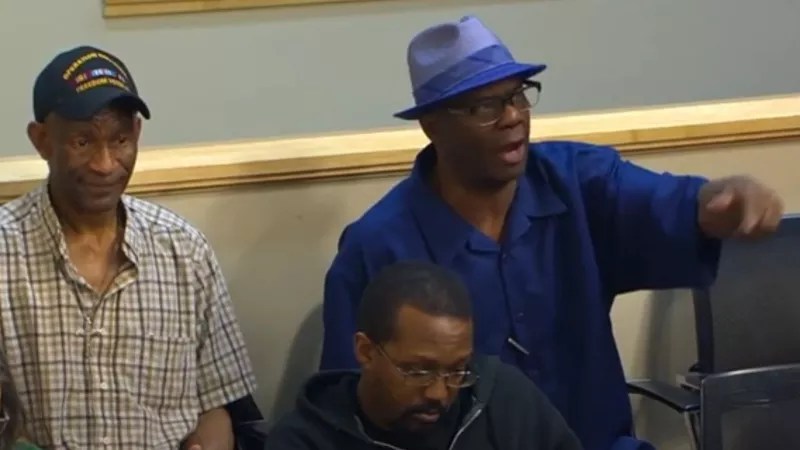
City of Aurora via YouTube

Audio By Carbonatix
On April 19, the City of Aurora staged a town hall focused on the consent decree imposed on the Aurora Police Department by the Colorado Attorney General last year after determining that the APD has a history of racial bias – though that’s not how an Aurora release previewing the event put it. Instead, that alert led with a note about IntegrAssure, the Florida-based consultancy tasked by the AG’s office with helping Aurora resolve “issues identified in a ‘Patterns and Practices’ report on the city’s public safety agencies.”
This phrasing is only one example of Aurora’s recent spin control, and such efforts are understandable. Last November’s $15 million lawsuit settlement related to the death of Elijah McClain, after a brutal encounter with Aurora police officers in August 2019, followed at least thirteen other incidents involving the city’s cops and people of color that resulted in big payouts. And the recent firing of Aurora Police Chief Vanessa Wilson, who was widely perceived as being committed to reforming the department, inspired some critics to wonder how serious city leaders were about actually fixing the problems.
Prior to the town hall, Aurora launched a new consent-decree website under the auspices of IntegrAssure. “The Office of the Independent Consent Decree Monitor for the City of Aurora oversees the implementation of a Consent Decree – a judicially enforceable agreement – between the City of Aurora and the Colorado Attorney General’s Office,” its introduction notes. “The Consent Decree requires the City to adopt a number of specific reforms aimed at enhanced public safety and enhanced public trust, including changing important policies, developing new training materials, and training its personnel on those new policies. In addition, it requires Aurora to operate in a more transparent manner by changing core processes and sharing more information with the public.”
The site includes a section about the monitorship, including references to Senate Bill 20-217, which authorized it; the monitoring team, led by IntegrAssure’s Jeff Schlanger; the community advisory council, created in March to provide input; key dates and assorted documents, including the consent decree itself; and more.
The two-hour town hall began with assurances from Schlanger, city manager Jim Twombly, who sacked Wilson, and various officials about their sincere efforts to improve the Aurora Police Department’s performance, after which plenty of citizens either raised ongoing concerns or expressed doubts that meaningful change will actually happen.
A member of a previous community task force wondered where all of that group’s work had gone, since so much of what was being discussed struck her as redundant. Another person complained about a lack of rapport between Aurora residents and officers, whose social and emotional skills he felt were lacking. A woman saw terms such as “gang violence” being used to stigmatize and label people. And a man groused about calls to police being ignored in the area near where “that little brother” (McClain) was killed. A few minutes later, the man’s companion wanted to know why interim police chief Chris Juul hadn’t commented on the issue and said he was worried that he’d be chased down and ticketed after the meeting for even raising the subject – an indication that the sort of trust championed by the consent decree will be difficult to build.
Here’s a video of the town hall: